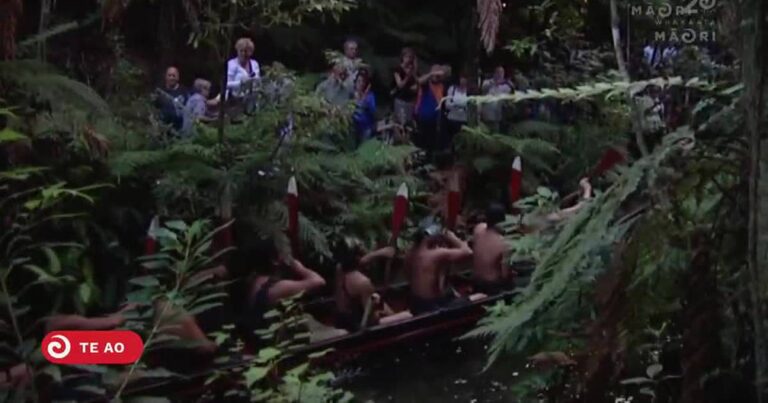New Zealand’s tourism market is valued at $37 billion, making it the country’s second-largest export earner. TRENZ, Aotearoa’s biggest tourism event, concluded in Wellington in early May. The event provides a global platform for tourism operators to build partnerships and showcase their services.
TRENZ officials will welcome 1,000 New Zealand delegates and 200 international buyers from 25 countries. For Māori tourism operators, this is a great opportunity to highlight their rich cultural heritage and unique experiences.
“For Māori, it’s a connection to the earth and sky, especially the environment. We consider our families and the wider community. We are a collective and our economic profits go back into the community.” Wetini Mitai Ngatai of Mitai Cultural Tours said.
Debbie Robertson from Wai Ariki Hot Springs and Spa emphasized the importance of sharing Māori heritage: It’s a combination of sauna, waterfall and pool, but it’s our infusion of cultural touchpoints that makes it unique. ”
Polina McLeod of Mauao Adventures echoed similar sentiments, emphasizing the connection between people and the land.
“We’re basically connecting people from all over the world and local people with whenua, moana and us as tangata whenua. We do that with paddleboarding, we do it with wakaama, we do it with walking mauao, which is maunga. I will climb up.”
Despite their resilience, Māori tourism operators face significant challenges.
“Rotorua has been hit hard by the impact of COVID-19. We have been impacted by more whānau being put up for sale as housing and the reputational brand damage that Rotorua has suffered. . We are still trying to recover from this situation, but it will take a long time,” Robertson explained.
Dean Savage of Dive Tatapouri pointed out that the effects of natural disasters are long-lasting.
“After the cyclone, there was a perception that we were closed for business. We want to change that perception. We are now open for business.”
Last year’s budget allocated $8 million for Māori tourism. Looking ahead to Budget 2024, Māori tourism operators have special needs and want continued support.
“Brands need support to move beyond the perception of being tarnished and connect with all products across legislation,” Robertson stressed.
Mr McLeod emphasized the need for training and development.
“It would be beneficial if we had the funding to train the kaimahi and allow them to develop their knowledge and understanding of their own story and field for about three months.”
Mr. Savage emphasized the importance of infrastructure.
“My hope is that they stick to their guns when it comes to building the resilient roads that are needed in Tairawhiti. Without these roads, visitors cannot come and goods cannot leave the district. So if I ask for funding, please keep the good infrastructure on track.”
Mitai Ngatai suggested focusing on local organizations rather than those that already have deep pockets.
“We shouldn’t focus on companies that are doing well and have already invested heavily. Instead, we need to focus on supporting Māori and rural organizations.”
As the tourism industry looks forward to the 2024 Budget on 30 May, we are confident it will meet these needs and provide the support Māori tourism businesses need to grow and continue to share their cultural heritage with the world. is expected to provide.

